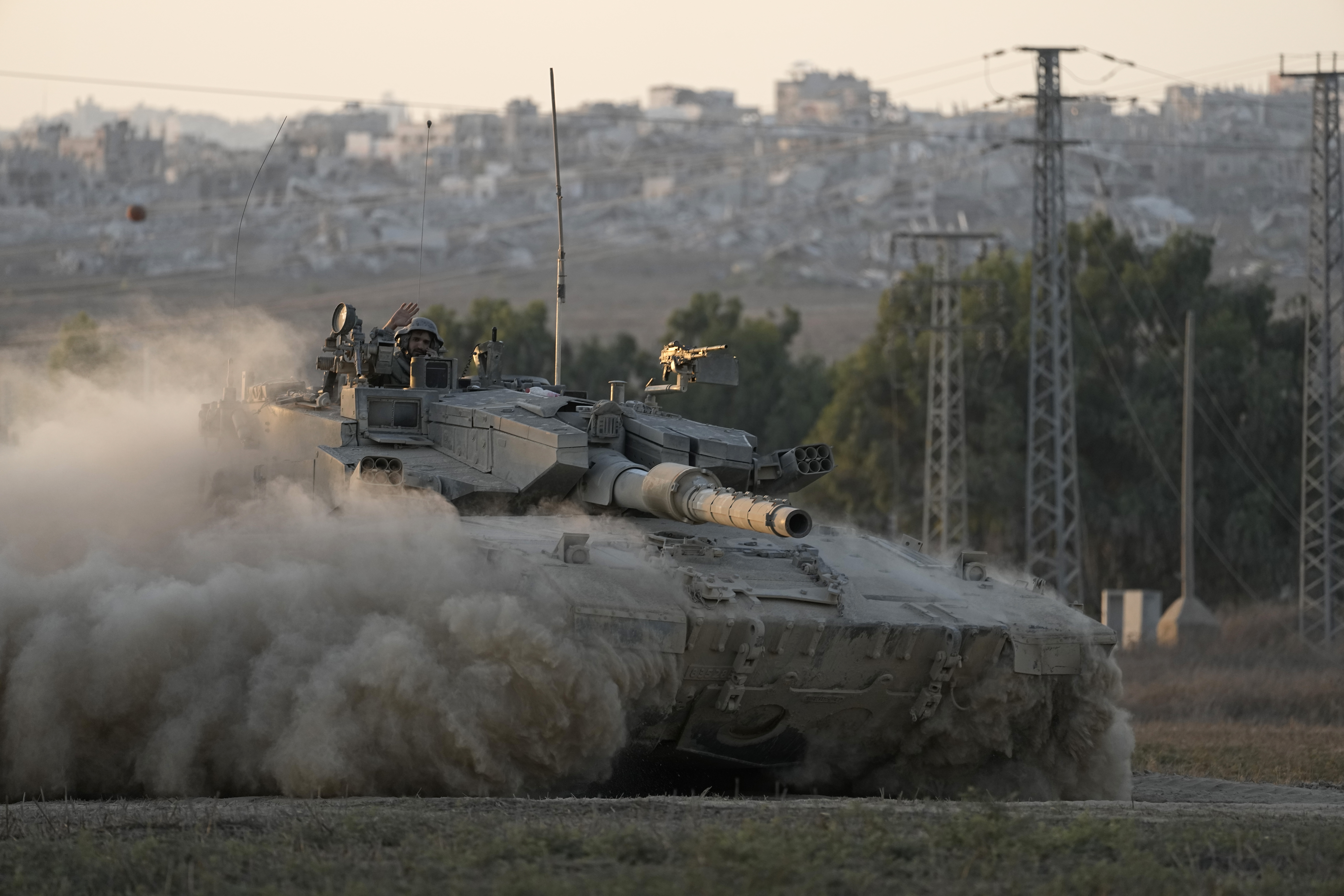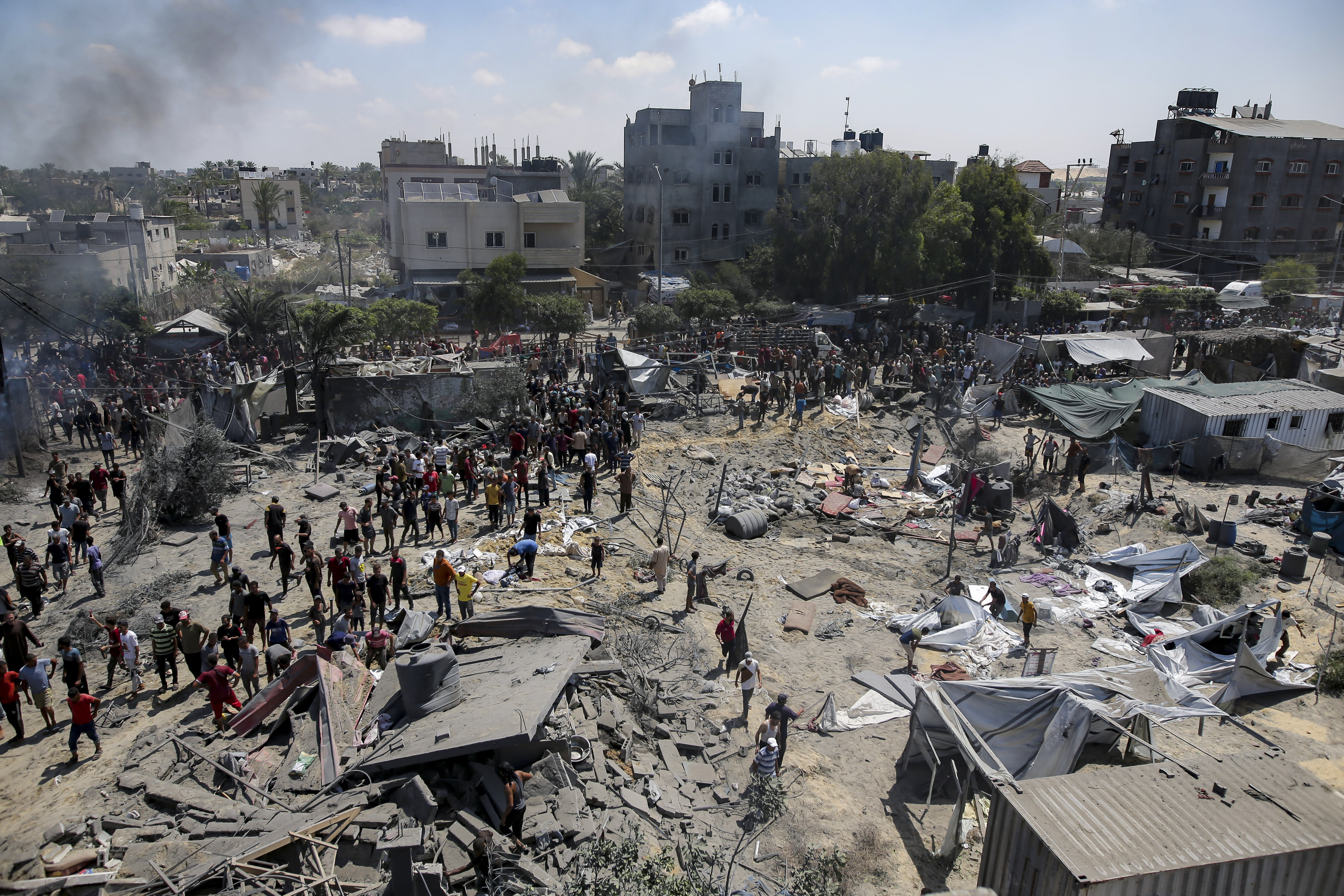
WASHINGTON - The US is deploying additional military might in the Middle East as a defensive measure with a goal of de-escalating tensions in the region, a White House official said on Sunday.
Regional tensions have increased following the assassination on Wednesday of Ismail Haniyeh, the leader of the Palestinian Islamist group Hamas, in Tehran a day after an Israeli strike in Beirut killed Fuad Shukr, a senior military commander from the Lebanese group Hezbollah. Both groups are backed by Iran.
There are mounting fears that Israel's war against Palestinian militants in Gaza, which began last October after attacks on the Jewish state, could escalate into a wider Middle East conflict. Iran and Hamas have blamed Israel for Haniyeh's killing in the Iranian capital, and they, together with Hezbollah, have vowed revenge. Israel has not claimed or denied responsibility.
US President Joe Biden will convene his national security team in the situation room on Monday to discuss developments in the Middle East, the White House said, adding that he would speak with Jordan's King Abdullah as well.
US news service Axios reported that US Secretary of State Antony Blinken told his counterpart from G7 countries that Iran and Hezbollah could start attacking Israel as early as Monday, citing three sources briefed on the call. But Blinken, according to Axios, said it was unclear how Iran and Hezbollah would attack and did not know the exact timing.
ALSO READ: China donates $3m to UN agency for aid in Gaza

When asked about the report, the State Department referred to a readout of the call, where it said the ministers discussed "the urgent need for de-escalation in the Middle East."
The Pentagon said on Friday it would deploy additional fighter jets and Navy warships to the region.
"The overall goal is to turn the temperature down in the region, deter and defend against those attacks, and avoid regional conflict," Jonathan Finer, the White House's deputy national security adviser, said on CBS' "Face the Nation" program.
The US and Israel are preparing for every possibility, Finer added.
ALSO READ: Israeli strikes hit Gaza schools, hospital compound after talks fail
There was a "very close call" of regional conflagration in April, Finer said, when Iran launched an attack on Israeli territory with drones and missiles after what it called an Israeli strike on its consulate in Damascus on April 1 that killed seven officers of the Islamic Revolutionary Guard Corps in the Syrian capital.
The US wants to be prepared should that situation rise again, Finer added.
In a call with his Israeli counterpart, the Pentagon said US Defense Secretary Lloyd Austin reiterated the United States' support for Israel's security and "right to self-defense against threats from Iran, Lebanese Hizballah (Hezbollah), Houthis, and other Iranian-backed terrorist groups."
Blinken spoke with Iraqi Prime Minister Mohammed Shia al-Sudani on Sunday and emphasized "the importance of all parties taking steps to calm regional tensions, avoid further escalation, and advance stability," the State Department said.
'Prudent planning'
Biden on Saturday expressed hope that Iran would stand down despite its threat to avenge Haniyeh's killing.
The US on Wednesday urged its citizens who wish to leave Lebanon to start making plans immediately.
"This is no prediction about future events. It is prudent planning for them and for our government," Finer said on CBS.
The British government advised its nationals to leave Lebanon. Canada told its citizens to avoid all travel to Israel, saying the regional conflict endangers security.
Haniyeh's death was one in a series of killings of senior Hamas figures in the Gaza war - with nearly 40,000 Palestinians killed, according to Gaza's health ministry - and it fueled concern of a wider Middle East conflict.
Hamas said it has begun a "broad consultation process" to choose a new leader to replace Haniyeh, who was the face of the group's international diplomacy.
The US and international partners including France, Britain, Italy and Egypt continued diplomatic contacts seeking to prevent further regional escalation.
Jordan's foreign minister, Ayman Safadi, will travel to Iran on Sunday in a rare visit to discuss regional developments with his Iranian counterpart, Iranian state media reported.
Violence continued on Sunday in the Palestinian territories.
At least 25 Palestinians were killed and several others injured on Sunday in an Israeli strike targeting two schools that were sheltering displaced people near Gaza City, the official Palestinian news agency WAFA said.
Another strike hit a tent inside a hospital compound in central Gaza, killing at least five people, Gaza health officials said, after another round of talks ended without result.


